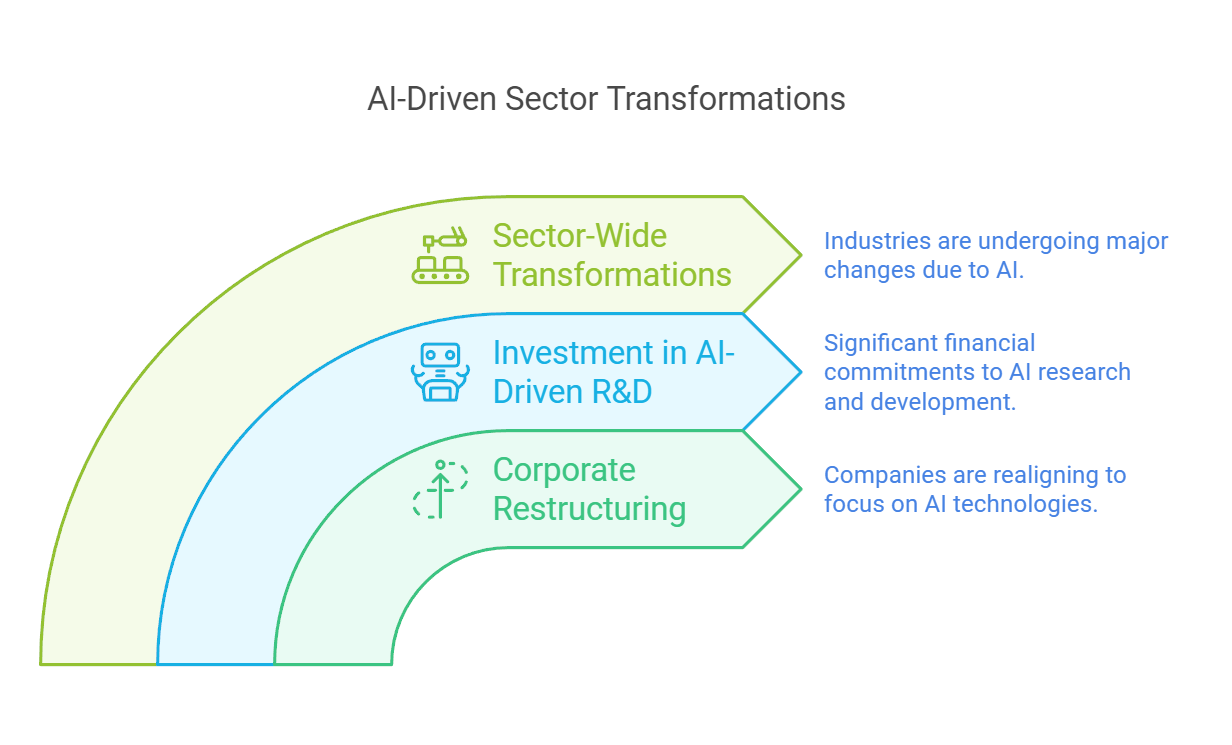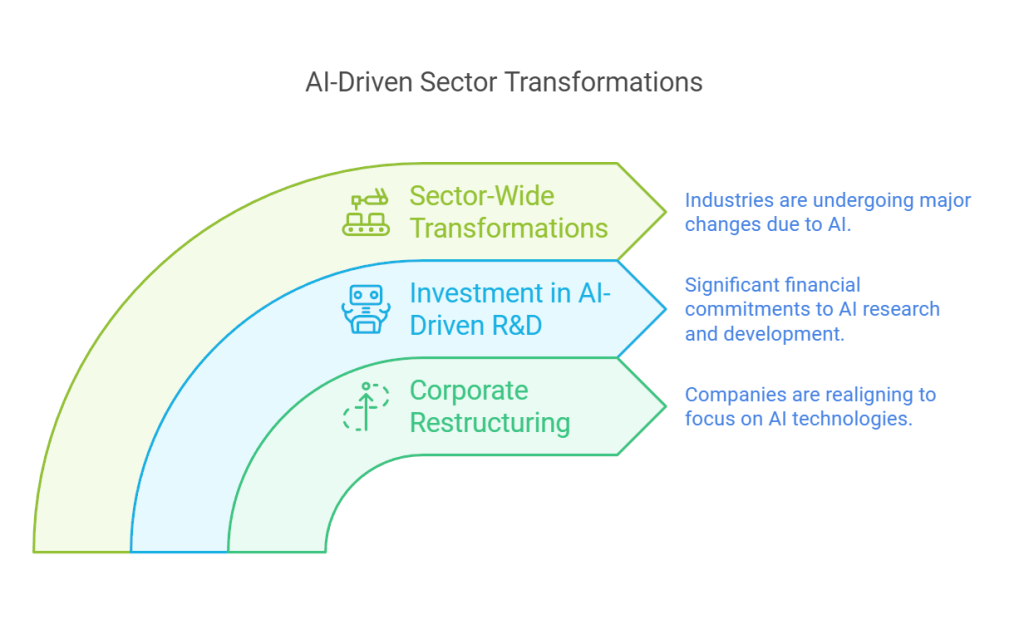
Companies across various industries are undergoing significant restructuring of their research and development operations, driven by AI advancements. Notably, firms like SAP and Intel are investing heavily in AI while reducing traditional roles, highlighting a shift towards AI-centric business models.
In recent years, artificial intelligence (AI) has significantly transformed research and development (R&D) across various industries, leading to substantial organizational restructuring to harness AI’s potential.
Key Developments:
- Corporate Restructuring:
- SenseTime’s Strategic Shift: SenseTime Group, a prominent Chinese AI company, announced a major organizational restructuring to focus on generative AI technologies, aiming to make it the company’s core business to enhance growth and profitability. Reuters
- Pharmaceutical Industry Adaptations: Companies like Exscientia have implemented workforce reductions while emphasizing AI-driven drug discovery, aiming to streamline operations and automate discovery processes. RD World Online
- Investment in AI-Driven R&D:
- SAP’s Commitment: The enterprise software giant SAP is investing €2 billion annually in AI, reflecting a significant commitment to integrating AI into its R&D processes. RD World Online
- AMD’s Strategic Investments: Advanced Micro Devices (AMD) has increased its forecast for 2024 data center AI-enabling GPU chip revenue to over $5 billion, highlighting the growing demand for AI capabilities. RD World Online
- Sector-Wide Transformations:
- Biopharma Innovations: The biopharmaceutical sector is leveraging AI to accelerate drug discovery and development, with companies like Xaira Therapeutics launching with over $1 billion in committed capital to focus on AI-driven drug development. RD World Online
- Semiconductor Industry Shifts: Companies such as Intel and AMD are restructuring their workforces to focus more on AI chip development, aligning resources with key growth opportunities in AI technologies. RD World Online
Implications:
- Accelerated Innovation: AI integration in R&D processes enables faster product development cycles, allowing companies to bring innovative products to market more swiftly.
- Operational Efficiency: Automation of routine tasks through AI leads to streamlined operations, reducing costs and improving efficiency.
- Competitive Advantage: Organizations that effectively implement AI in R&D can gain a significant edge over competitors by rapidly adapting to market changes and consumer preferences.
These developments underscore AI’s transformative impact on R&D, prompting companies across various sectors to restructure and invest in AI capabilities to drive innovation and maintain competitiveness.








